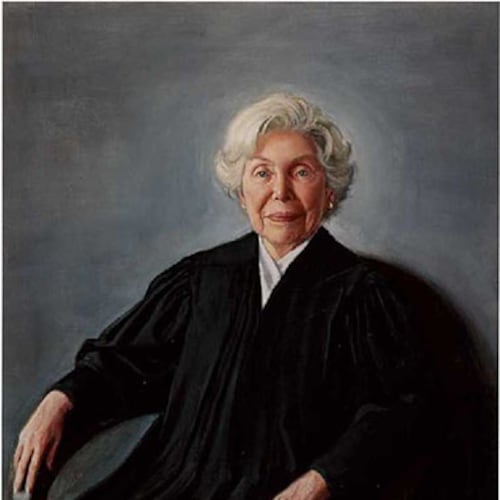al
This time, Bright argued on behalf of James McWilliams, who sits on Alabama's death row. At issue is whether defense attorneys are entitled to an independent expert when their client's mental health needs to be explained during the trial or at sentencing.
McWilliams was denied this before being sentenced to death, Bright told the justices. Just hours before McWilliams' sentencing hearing, his lawyers received a mountainous pile of medical records that showed he had organic brain damage. But his lawyers had no time to consult with an expert who could sift through the records and help them present evidence in mitigation, Bright said.
McWilliams deserves a new sentencing hearing because that denial violated a U.S. Supreme Court precedent set in 1985, Bright contended.
But a number of the court's conservative justices weren't so sure, indicating that the 1985 ruling did not set a clear precedent because its reasoning was so ambiguous. And Justice Neil Gorsuch, the court's newest member, wondering what precedent the court would be setting if it required an independent mental health expert for the defense.
"Where's the stopping point?" Gorsuch asked Bright. "Is it just psychiatry? Would we also have to apply the same rule in other kinds of medicine, perhaps? Forensic science? Where's the stopping point that you would advocate for the court?"
Bright told Gorsuch the court should focus only on the matter at hand, and it should consider "the unique nature of mental health and the fact that experts widely disagree on mental health."
An independent mental health expert is necessary for the defense because it would help even the playing field, Bright said, contending that prosecutors can hire as many experts as they want.
"(T)hat's what we come back to at the end of this case, is the proper working of the adversary system," Bright said. "And this certainly doesn't put the defense in an equal position with the prosecutor, not by a long shot, but it at least gives the defense a shot, at least gives them one competent mental health expert that they can talk to, understand what the issues are, present them as best they can."
Such an expert, Bright said, can be used for "everything from gathering information, to organizing it, to preparing or deciding on the defense to be used in the case, to coaching the -- or advising the lawyer about cross-examination, to actually testifying."
The court is expected to issue its ruling by the end of June.
McWilliams' appeal was brought by lawyers for the Southern Center for Human Rights in Atlanta, which Bright founded 35 years ago.
Bright won his previous three arguments. The first one, in 1988, won a new trial for
Credit: Bill Rankin
Credit: Bill Rankin
Tony Amadeo, who'd been sentenced to death for killing a retired dairyman in Putnam County, while AWOL from Camp Lejeune.
The high court unanimously overturned Amadeo's death sentence because the local district attorney had told jury commissioners how to keep African-American residents off the jury pool.
Amadeo, who was paroled a few years ago, took college courses in prison offered by Mercer University and graduated class valedictorian.
In 2008, Bright won a new trial for Allen Snyder, who'd been sentenced to death for a killing just outside New Orleans. The high court found racial bias infected the selection of Snyder's jury, when the prosecution struck all five African-American prospective jurors to get an all-white jury.
Credit: Bill Rankin
Credit: Bill Rankin
Last year, Bright won a new trial for Timothy Foster, a black man who'd been sentenced to death for killing an elderly white woman in Rome. The court found racial bias during the selection of the all-white jury that decided Foster's fate, bolstered by the prosecution's own color-coded notes detailing efforts to keep African-Americans off the jury.
"It's been a great opportunity and experience," Bright, in a recent interview, said of his prior arguments. "It's remarkable to stand in front of the nine justices and have a conversation with them about a case."
Bright, 68, is leaving the Southern Center, which is hosting a tribute for him on May 2 at the Foundry at Puritan Mill. He's now leaving the law office to teach courses at Georgetown, Georgia State and Yale law schools.
To read a profile of Bright, who has long represented the powerless and indigent while forsaking the riches his profession could bring, please go here to myajc.com.
About the Author
The Latest
Featured




